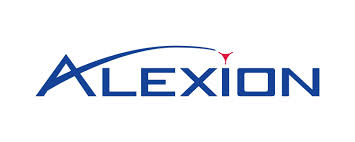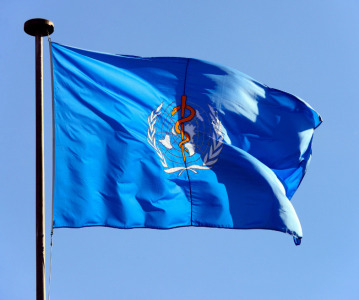FDA approves Kanuma for the treatment of patients with lysosomal acid lipase deficiency

Kanuma is the first approved treatment in the US for patients suffering from LAL-D, a life-threatening and ultra-rare metabolic disorder.
Alexion Pharmaceuticals has announced that the FDA has approved Kanuma (sebelipase alfa) for the treatment of patients of all ages with a diagnosis of lysosomal acid lipase deficiency (LAL-D). Kanuma, an innovative enzyme replacement therapy (ERT), is the first therapy approved in the US for the treatment of patients with LAL-D, a genetic and progressive ultra-rare metabolic disease in which patients suffer multi-organ damage and premature death.
“We are pleased with the FDA approval of Kanuma, a transformative treatment for patients with LAL-D, a devastating, ultra-rare disease that causes premature death in infants and multi-organ damage in those who survive,” said David Hallal, CEO of Alexion. “Importantly, the label includes a survival benefit in infants and reductions in important markers of liver disease, including ALT and liver fat content, as well as significant improvements in lipid parameters, in children and adults. This approval also strengthens Alexion’s global leadership in rare diseases as we broaden our product portfolio to transform the lives of more patients with severe and life-threatening disorders. We look forward to bringing Kanuma to patients with LAL-D and their physicians in the US.”
“I am delighted that patients with LAL-D now have the first approved therapy that treats the underlying cause of the disease,” said Barbara K. Burton, lead clinical trial investigator, Professor of Pediatrics at the Northwestern University Feinberg School of Medicine and Attending Physician at the Ann and Robert H. Lurie Children’s Hospital of Chicago. “In the absence of treatment, LAL-D is nearly always fatal in infants and puts pediatric and adult patients at high risk of vital organ damage and premature mortality. In clinical studies, 67% of infants who received enzyme replacement therapy survived beyond 12 months of age, and children and adults had meaningful improvements in multiple disease-related liver and lipid abnormalities.”
LAL-D is a genetic, chronic, and progressive metabolic disease associated with significant morbidity and premature mortality. It is an ultra-rare disease, which is defined as a disease that affects fewer than 20 patients per one million of the general population.1 Patients with LAL-D can experience a rapid onset of life-threatening disease manifestations, and without treatment, the youngest patients with LAL-D face rapid disease progression that is typically fatal within a matter of months. In addition, similar to other liver diseases, many patients may be asymptomatic until they experience a severe consequence of the disease. LAL-D is caused by genetic mutations that result in a marked decrease or loss in LAL enzyme activity in the lysosomes across multiple body tissues, leading to the chronic build-up of cholesteryl esters and triglycerides in the liver, blood vessel walls, and other organs.
“Patients with LAL-D often suffer for years from a delayed diagnosis, only to be further devastated once properly diagnosed because there have been no approved treatments for this disease,” said Brett Billmeyer, Board of Directors, LAL Solace. “Today, we are thrilled to welcome the FDA approval of Kanuma, providing an approved and effective treatment to patients with LAL-D and their families for the first time and, with it, bringing much-needed awareness to this often overlooked and devastating disease.”
Alexion is preparing to serve patients in the US with Kanuma and expects that Kanuma will become available commercially during the first week of January 2016. The company’s expanded access program will remain open to enable patients with LAL-D in the US to access Kanuma until commercial product is available.
The FDA approved Kanuma under Priority Review, and had previously granted Breakthrough Therapy Designation for Kanuma for LAL-D presenting in infants. With this approval, the FDA also issued a Rare Pediatric Disease Priority Review Voucher, which confers priority review to a subsequent drug application that would not otherwise qualify for priority review. The rare pediatric disease review voucher program is designed to encourage development of new drugs and biologics for the prevention or treatment of rare pediatric diseases. Kanuma is also approved in the European Union, and a New Drug Application for Kanuma has been submitted to Japan’s Ministry of Health, Labour and Welfare.
Related News
-
News Pharmaceutical industry supports COP28 health stance in joint statement
As COP28 takes place over this week in Dubai, UAE, several bodies in the pharmaceutical and health industries have come together to announce support of key movements in sustainability in the sector, and to recognise sustainability as a health issue.&nb... -
News Biden backs Cold-War measures to shore-up medical supply chains
In a recent strategy to combat rising inflation and the cost of living crisis, President Joe Biden has invoked a Cold War-era act to increase investment in a selection of medicines and supplies. -
News CPHI Podcast Series: What does the changing US Pharma market mean for industry and patients alike?
In this week's episode of the CPHI Podcast Series Lucy Chard, Digital Editor for CPHI Online is joined by James Manser to discuss the political and market changes in the US pharma field. -
News Which 10 drugs are open to price negotiation with Medicare in the USA?
The Centres for Medicare & Medicaid Services, under the Biden administration in the USA, has released a list of the 10 drugs that will be open to price negotiations as part of the new legislation under the Inflation Reduction Act (IRA). -
News 10 Major Drug Approvals So Far in 2023
Last year, 37 novel drugs were approved by the FDA, this was a high number for such a category, and covered many fields including oncology, demonstrating how promising further research is, and how it is only continuing to build. To date, there are alre... -
News Novartis agrees for copies to be made of cancer drug to reach poorer countries
Novartis signs agreement with MPP to have generics of it's leukemia drug made so that it can be more easily distributed to the world's poorer countries. -
News CPHI Podcast Series: outsourcing and manufacturing trends
Listen to the CPHI Podcast Series this June to hear Gil Roth of the PBOA speak with Digital Editor Lucy Chard about the biggest trends and topics to watch in pharma outsourcing and manufacturing at the minute. -
News New WHO health emergency guidelines expect full transparency from Big Pharma
The WHO are proposing a new set of pandemic guidelines to set out how future global health crises should be handled.
Position your company at the heart of the global Pharma industry with a CPHI Online membership
-
Your products and solutions visible to thousands of visitors within the largest Pharma marketplace
-
Generate high-quality, engaged leads for your business, all year round
-
Promote your business as the industry’s thought-leader by hosting your reports, brochures and videos within your profile
-
Your company’s profile boosted at all participating CPHI events
-
An easy-to-use platform with a detailed dashboard showing your leads and performance







